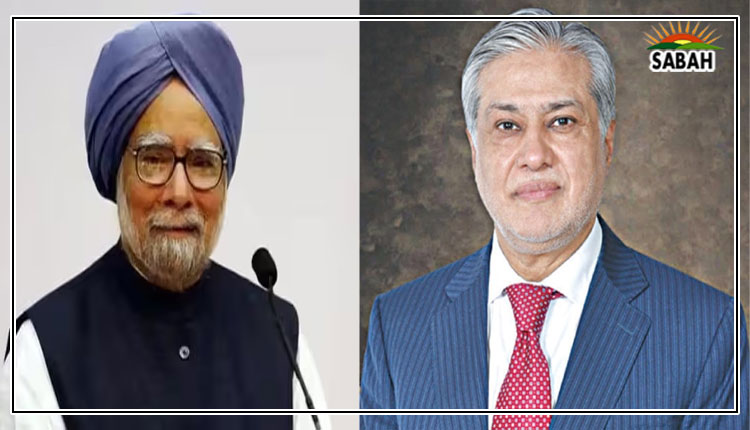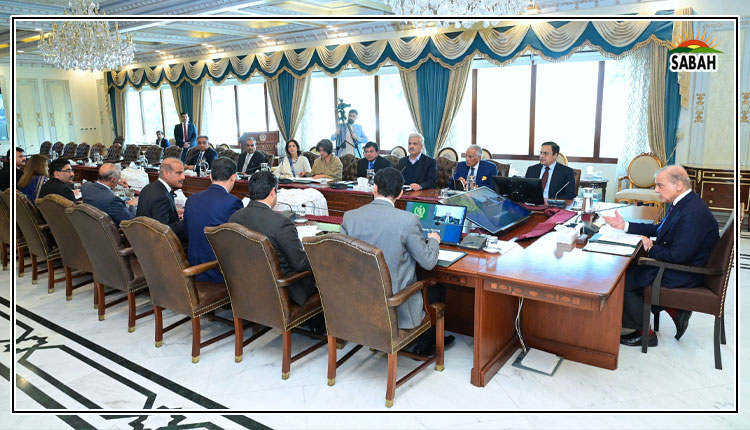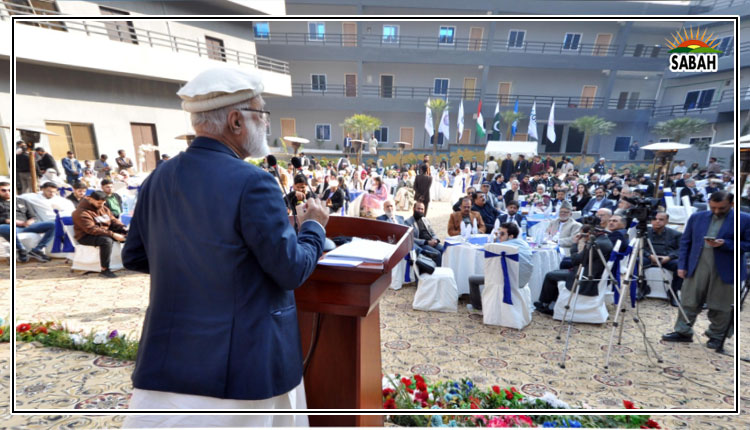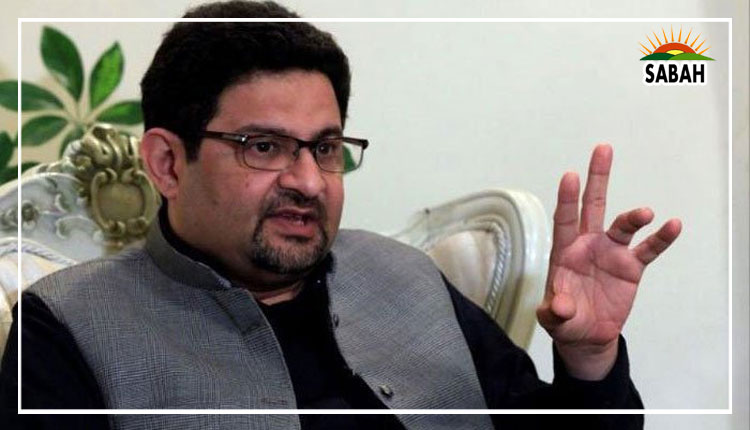Country’s balance-of-payments position was ‘well under control’: Miiftah Ismail
ISLAMABAD/KARACHI, August 10 (SABAH): Federal Minister for Finance and Revenue Dr. Miftah Ismail Ahmed says the serious worries about Pakistan heading the way of Sri Lanka and getting into a default-like situation, have been averted after significant policy changes and austerity measures.
In an interview with “CNBC”, Dr. Miftah Ismail said the high price of energy imports recently pushed Pakistan to the brink of a balance of payments crisis.
The Finance Minister said Pakistan’s foreign currency reserves fell as low as 9.8 billion dollars, which were hardly enough for five weeks of imports, while the Pakistani rupee weakened to record lows against the US dollar this year.
He said the global rise in prices of oil, and other commodities caused inflation in the country. However, he said Pakistan is now heading in the right direction.
Miftah Ismail said the government has raised taxes, removed unfunded subsidies on oil and power sectors and reduced imports in recent weeks, to push the country out of economic difficulty.
He said Pakistani rupee has come back about seven percent or so against the US dollar in the last week.
Meanwhile Finance Minister Miftah Ismail said that macroeconomic stability is forthcoming in view of the International Monetary Fund (IMF) programme resuming by the end of the month as all conditions in this regard have been met.
He made the remarks during a meeting with Pakistan Stock Exchange officials, authorities and businessmen, according to a press release issued by the PSX on Tuesday.
PSX Chairperson Dr. Shamshad Akhtar, Securities and Exchange Commission of Pakistan Chairperson Aamir Khan, PSX CEO and Managing Director Farrukh H. Khan, Federal Board of Revenue (FBR) Chairperson Asim Ahmad, State Bank of Pakistan (SBP) Deputy Governor Dr Inayat Hussain, Special Secretary Finance Awais Manzoor, and key stakeholders including Arif Habib Group Chairman Arif Habib, Pakistan Stock Brokers Association & AKD Group Chairman Aqeel Karim Dhedhi, Bank Alfalah Limited CEO Atif Bajwa, NBP Funds CEO Dr Amjad Waheed, Arif Habib Corporation Director Nasim Beg, and Pakistan Business Council CEO Ehsan Malik participated in the meeting.
The meeting discussed Pakistan’s macroeconomy, capital markets, taxation and non-tax measures.
Miftah Ismail assured that the country’s balance-of-payments position was “well under control” and it may even have a surplus in the coming months because of increased hydel power, lower energy demands and lower oil prices.
“Fiscal discipline will be strictly followed and all additional expenditures will be fully funded by tax measures. [The] 10 per cent super tax is only imposed for one year while alternative revenue streams are developed,” he said.
He also iterated that advances-to-deposits ratio-linked tax on banks will not be imposed retrospectively and tax revenues from the retail sector are expected to be significantly higher compared to last year.
The minister also formed three committees — of which the first one would share the private sector’s stance on interest rates with the SBP’s Monetary Policy Committee, the second would coordinate with the Pakistan Business Council and the PSX on all tax issues and the third would review the listing of development finance institutions (DFIs), debt and Sukuk issuance, reform of the National Savings Scheme, and explore the development of a market for exchange rate forward dealing which all market participants can access.
Miftah Ismail committed to review the progress and meet the stakeholders again in two weeks, the press release stated.
For his part, PSX MD Khan told the finance minister the situation in the capital markets needed to be addressed on a “war footing”. He noted that while state-owned enterprises (SOEs) were “extremely profitable, their payout ratio is a meagre 18pc”. The participants asked that the payout ratio be raised to 50pc.
Ismail then directed the relevant ministry to immediately hold a meeting with stakeholders to discuss the matter.
The meeting’s participants said the income of listed companies was subject to double tax while unincorporated businesses were subject to substantially lower taxes. They also expressed concerns about the capital gains tax (CGT).
“The finance minister was highly receptive to all the points discussed. In particular, he asked the FBR to immediately review any discrepancies in the CGT regime and the issue of tax credit for newly listed companies. He asked SECP to review the investment limit and AML (anti-money laundering) requirements for Sahulat Accounts,” the press release stated.












